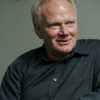Ulrich Beck

Ulrich Beck
Ulrich Beckwas a well known German sociologist, and one of the most cited social scientists in the world during his lifetime. His work focused on questions of uncontrollability, ignorance and uncertainty in the modern age, and he coined the terms "risk society" and "second modernity" or "reflexive modernization" . He also tried to overturn national perspectives that predominated in sociological investigations with a cosmopolitanism that acknowledges the interconnectedness of the modern world. He was a professor at the University of...
NationalityGerman
ProfessionSociologist
Date of Birth15 May 1944
CountryGermany
The basic assumption of the secular society is that modernity overcomes religion.
Initially, the horrific images of September 11th triggered an enormous wave of solidarity.
Europe itself is an embodiment of this diversity.
I held a conference in Harvard where Americans said they didn't believe in risk. They thought it was just European hysteria. Then the terrorist attacks happened and there was a complete conversion. Suddenly terrorism was the central risk.
Accordingly, globalization is not only something that will concern and threaten us in the future, but something that is taking place in the present and to which we must first open our eyes.
And the terror itself is an example of the world's uncontrollability.
And therefore we must seek dialogue in this networked world. We must ask which voice was actually attempting to make itself heard and saw no other possibility of gaining a hearing. To that extent, for a while this also represented a forced opening of a cosmopolitan view.
You need education. You need subsistence protection. We need jobs and social security. These are preconditions under which it will perhaps be possible to deal with these complex circumstances.
You cannot make peace with terrorists. The normal dividing lines between war and peace do not apply.
The world has become so complex that the idea of a power in which everything comes together and can be controlled in a centralized way is now erroneous.
Nonetheless, we continue to be obsessed with finding or inventing a European nation which, as in the nation state, guarantees homogeneity and thus an appropriate form of democracy and centralized government.
In the final analysis, terror is also another proof of the fact that the superpower is not really a superpower. It was vulnerable.
But it then very soon became clear that the response of a war against terrorism, initially conceived of in a metaphorical sense, began to be taken increasingly seriously and came to entail waging a real war.
Global conditions are far too complex to be able to imagine that they could ever be really controlled by one power.